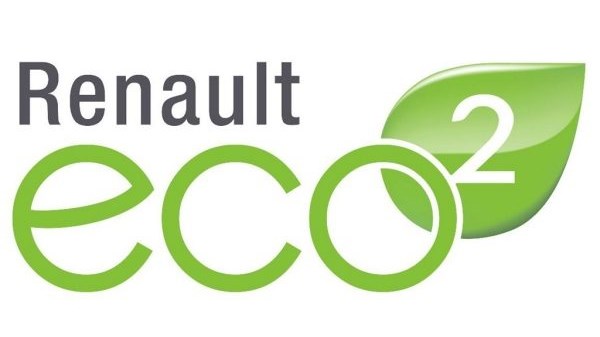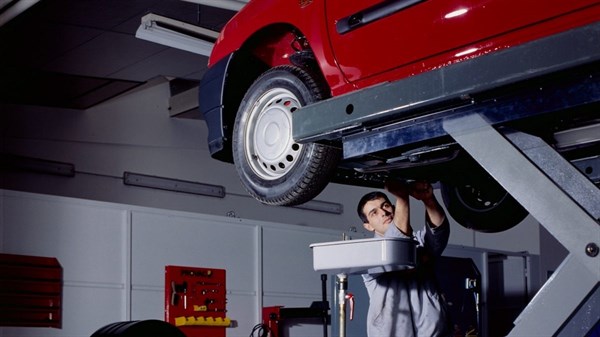Formula 1

Driving pleasure
In Formula 1, the most important thing is performance. When it comes to production engines, this performance needs to be linked to driving pleasure. Renault’s production engineers (some of whom previously worked in the F1 labs) have therefore created “downsized” engines that maximize energy output. The challenge is to reduce the engine size –that's the downsizing–sometimes even removing a cylinder, all while maintaining or increasing the engine’s power and torque with superchargers and turbo-compressors.
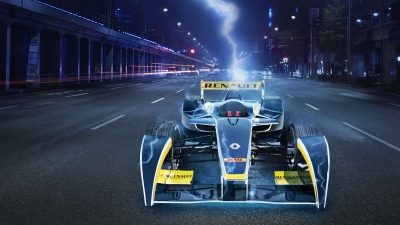
Energy engines
The new Energy engines have almost all gained between 10 and 20 Nm compared to their predecessors, leading to a driving experience based on the driver’s pleasure, on pure dynamism, on revving the engine, on liveliness and on responsiveness. Of course, there are other technologies borrowed from the world of F1 racing that have been put into use, increasing the performance and pleasure of production engines, technologies like square combustion chambers, for example. Another example would be the way that cooling water circulates in F1 engines, which has been adapted so that production engines operate faster at the ideal temperature for even more speed and efficiency.
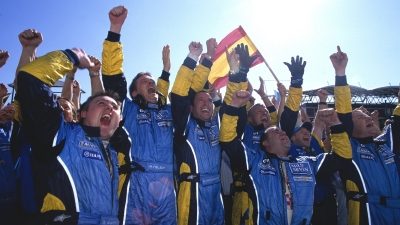
Lighter engines
In Formula 1, weight is the number one enemy. Getting the most out of each drop of fuel allows you to keep less of it on board, resulting in a vehicle that is lighter and therefore faster on the track. The new Renault engines have directly benefited from the expertise of the Group’s drivers. The latest generation of Energy engines use less fuel and produce less CO2, up to 25% less depending on the engine. To lower fuel consumption, Renault uses lighter aluminum engines that have been downsized (a 1.2L uses less fuel than a 1.6L), and that incorporate innovative materials like graphite, diamond-like carbon, and Teflon® timing belts, that reduce friction between the engine’s moving parts.

Low running cost
Less friction and less weight means less wasted energy and less fuel needed, it’s as simple as that! Less fuel also means less CO2 emitted and therefore less damage to the environment, another one of Renault’s focuses. True success means reducing fuel consumption without diminishing the pleasure and sensation of driving. With the new Energy engines, the driver has control over an engine that is responsive AND economical at the same time.
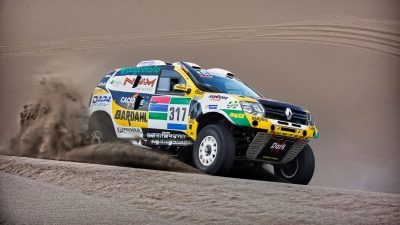
Quality
Consistency, durability, and reliability are coded into the genes of Renault’s F1 engines. It’s these qualities that have led to victory, and without them Renault would certainly not have won its 12th World Constructor’s Championship title in 2013.From its F1 team to its production teams, Renault demands the best in order to guarantee the quality and durability of its engines, no matter if they’re Formula 1 or Production models.
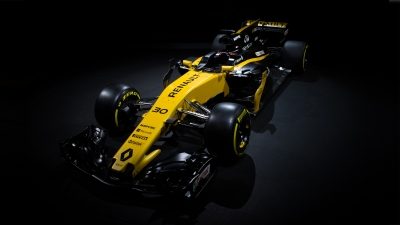
Durability
The engineers that have come out of the Formula 1 labs have guided the development of new petrol and diesel production engines, while also sharing their design methods and digital calculation tools for simulating engine durability. Quality tests are regularly carried out as engines come off of the production line, meaning that new engines are always getting more reliable and more durable over time.
RENAULT ENERGY F1®
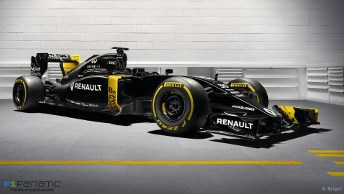
- 1.6 litre turbo-compressed V6 internal combustion engine
- Direct injection
- 15,000 max. RPM
- Powerful energy recovery systems made up of two electric motors: the MGU-H, which collects energy from the exhaust, and the MGU-K, which recovers kinetic energy during braking
- The electric energy produced is stored in a battery
- The maximum delivered power is 760 hp, which is similar to the previous V8 generation
- There are two restrictions on fuel consumption: the amount of fuel used during a race cannot exceed 100 kg (a decrease of 35% compared to 2013), and injected fuel flow will be limited to 100 kg/h (there was no limit in 2013). Vehicles will therefore need to use two types of energy, fuel and electricity, to make it around the track
- Engine development is put on hold for the duration of the season. The only modifications allowed will be those that reduce cost or address reliability issues.
- Each driver will be limited to 5 powertrains to be used over the course of the season.
- Direct injection
- 15,000 max. RPM
- Powerful energy recovery systems made up of two electric motors: the MGU-H, which collects energy from the exhaust, and the MGU-K, which recovers kinetic energy during braking
- The electric energy produced is stored in a battery
- The maximum delivered power is 760 hp, which is similar to the previous V8 generation
- There are two restrictions on fuel consumption: the amount of fuel used during a race cannot exceed 100 kg (a decrease of 35% compared to 2013), and injected fuel flow will be limited to 100 kg/h (there was no limit in 2013). Vehicles will therefore need to use two types of energy, fuel and electricity, to make it around the track
- Engine development is put on hold for the duration of the season. The only modifications allowed will be those that reduce cost or address reliability issues.
- Each driver will be limited to 5 powertrains to be used over the course of the season.
